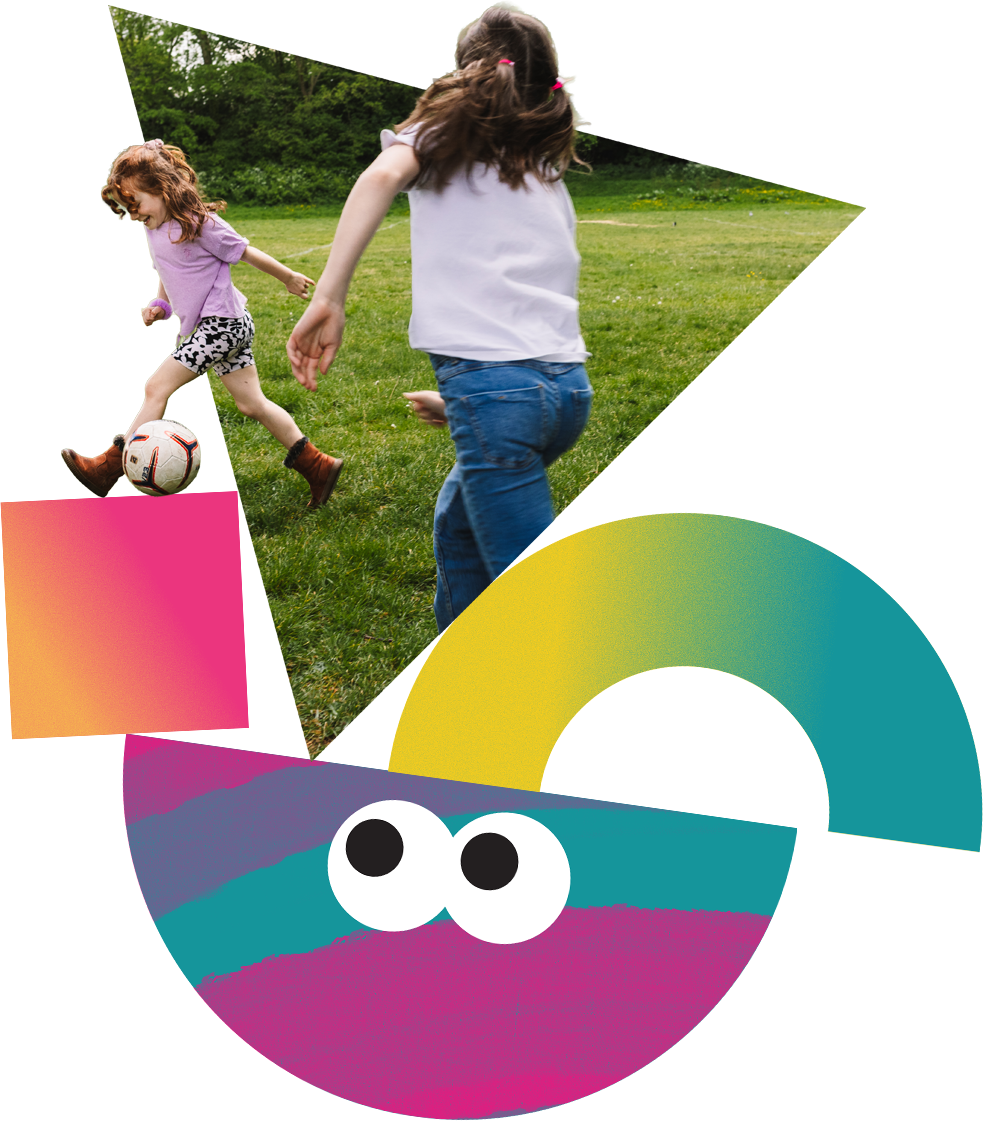Let’s play
Resource for parents to use alongside Understanding your child: from toddler to teenager in-person parent groups.

Why play matters
Why is play so important to children? Play is how children learn, grow and connect. Play can help build a strong relationship between you and your child and stimulate your child’s brain development.
This leaflet is here to help you explore the power of play and discover simple ways to support your child’s development. Whether you’re a parent, carer, or grandparent, we hope these ideas bring fun, smiles and spark connection.
All children are different and have unique needs, but every child is born with a natural desire to play and explore. It’s how they make sense of the world, build relationships and develop key skills. Think of play as your child’s way of learning—it’s their job and you’re their most important teammate.
What is play?
Babies start playing and communicating from the minute they are born. From the moment a baby watches your face or responds to your voice, they are starting to learn about taking turns, having fun and being playful with another person.
This develops into exchanging smiles and giggles, looking at things together and exploring toys and objects. Children don’t need fancy toys. Often, the box is more exciting than what’s inside! A cardboard box can become a rocket, a car or a castle. What matters most during play is your time, attention and helping your child to explore the world in their own way.
Let your child lead the way
The first step as a parent during play is to recognise what your child is interested in and follow their lead. By following and encouraging your child to express themselves in their own way, you can observe how your child shows you show us what they’re thinking and feeling through play.
Parents naturally want to teach their children and help them learn things like counting, colours, shapes, words. The best way? Start with what your child is already interested in. Point out what you see:
“That’s a blue square!” or “You’ve got 1, 2, 3 ducks!”
This allows you to learn together, step by step. Research shows that this way of playing really helps your child learn. Your child creates a step, you add one, and so on.
It can be hard to resist jumping in with suggestions or questions. But children enjoy play most when you describe what they’re doing, rather than directing it.
Play is a window into your child’s world
When encouraging your child to express themselves through play, you can also watch for cues: do they want you to join in, change the game or take a step back? It’s not always obvious, and that’s okay. Trial and error is part of the journey and there’ll be plenty of opportunities to try again. Your child will let you know what role they want you to play.
Even before words, play is communication
Babies communicate through movement, sounds and expressions. Your attention and sensitivity help build connection, even if you’re not sure what they’re trying to say. Trying to understand shows your baby you care. Children tend to very generous in their efforts to help us understand them, so don’t worry if you feel confused at first. You will get lots of chances!
Mirroring builds emotional connection
Mirroring your baby’s expressions or sounds might seem like fun, but it’s also how they learn about feelings and themselves. The more secure your child feels, the more confident they’ll be to explore and be creative.
Make play meaningful
There are so many ways to play—through toys, objects and everyday moments. Joining in helps your child build social skills and confidence, especially as they prepare for nursery or playgroup.
Children thrive when they feel their efforts matter. Taking their play seriously shows them they’re valued and understood.
Creativity isn’t always ‘correct’
Sometimes children do things differently—putting a cup of water on their head, painting a face green or playing a game upside down. It might seem ‘incorrect’, but it’s often a clever and creative way of exploring their imagination. Join in with the silliness! It’s part of the fun.
Messy play is great play
Mess can feel overwhelming, but it’s often a child’s most creative moment. Messy play helps children explore, experiment and learn about the world. It also teaches coping skills: that mess, like feelings, can be sorted out and processed with help from others.
Children who are allowed to explore mess can learn how to tidy up again and begin to understand they can manage messy emotions too. This helps them to tolerate difficulties and builds resilience for life’s challenges.
Young children often explore by putting things in their mouths. Food is a favourite—squishing, mushing, and mixing helps them learn about textures and colours. If you’re worried about mess, try a mat under the highchair. They’ll grow out of it—and grow through it.
Play helps children learn about emotions
Children who have been allowed to lead during play tend to develop better self-confidence and trust in others. This is because play helps children learn that they can have a positive impact on their environment and that adults will support them to use their imagination and have fun.
Your attention is valuable during play
Sometimes children don’t want to play with their parents. It might be tempting to avoid play times if they don’t seem to want to play with you, but instead, you can try sitting nearby and watching quietly. Your child values your attention more than your suggestions or directions at this developmental stage. If your child signals for you to join in, try to follow their lead and let them show you what to do.
Some parents find it hard to play
You might feel bored silly, or unsure what to do when playing with your child. Sometimes parents might worry about letting their child play with things ‘incorrectly’ or being a bit silly. That’s okay! Gently remind yourself that letting your child lead is key. A few simple toys and your attention are often all they need.
Sometimes play may bring back some childhood memories. If these affect your enjoyment during play, talk to someone you trust like a family member, friend or health visitor.
Togetherness is here to support you at every stage of your parenting journey.
You might like to try our expert-led, online pathway, Understanding your child: from toddler to teenager, to gain further insights into child development and emotional health. You can also contact your Family Information Service for face-to-face options.

